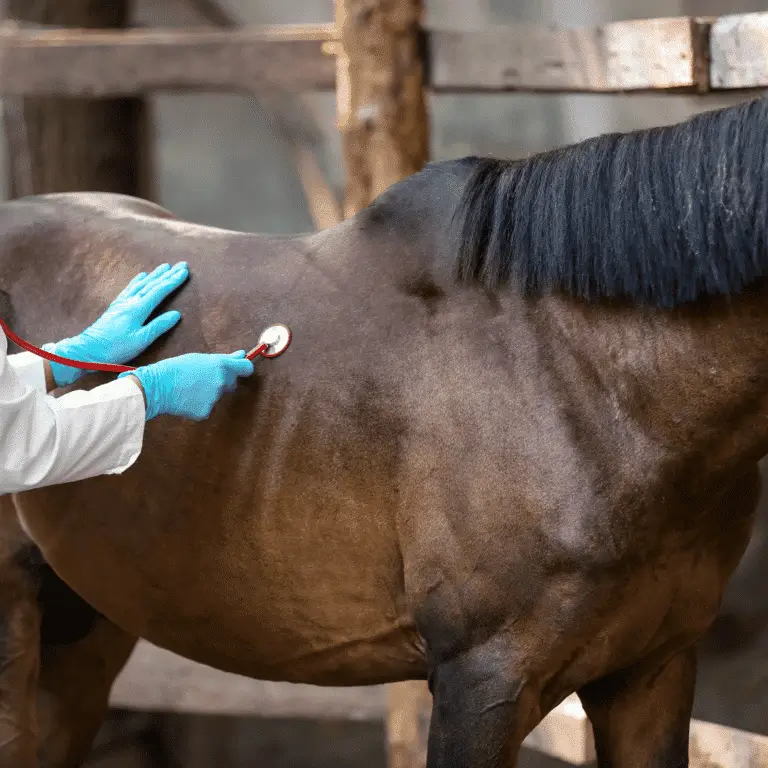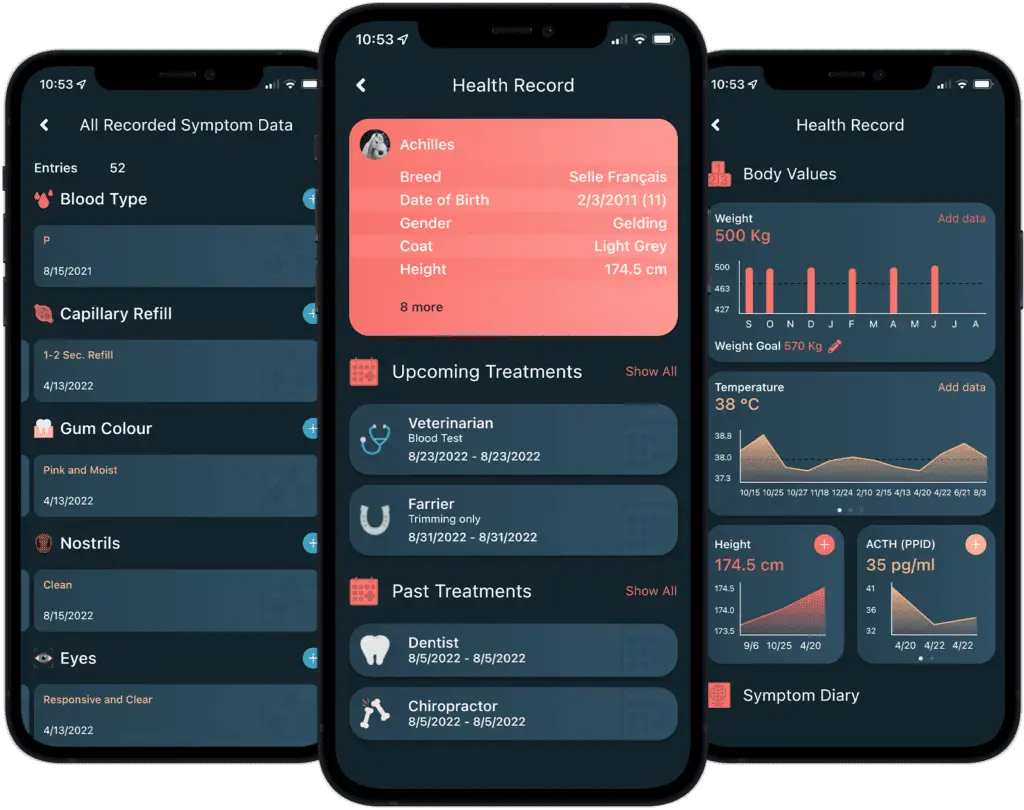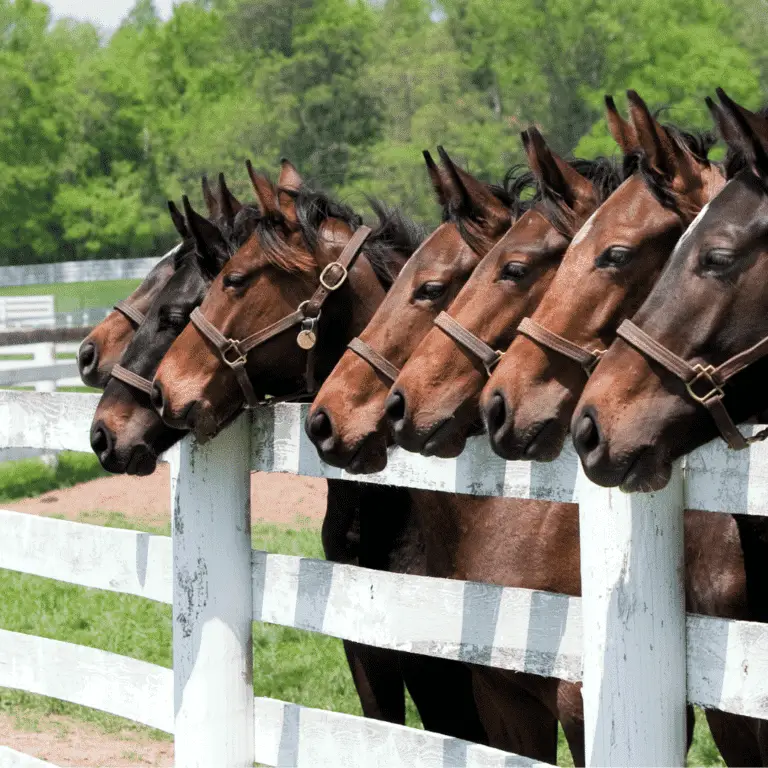
Heart Valve Dysplasia
Heart Valve Dysplasia in Horses Seek veterinary advice if you suspect this disease. Heart valve dysplasia is a congenital heart

This disease is life-threatening and should be treated by a veterinarian swiftly.
Tetralogy of Fallot (TOF) is a congenital heart defect that affects horses. It is characterized by four main abnormalities in the heart: a ventricular septal defect (VSD), obstruction of the right ventricular outflow tract (RVOT), dextroposition of the aorta, and hypertrophy of the right ventricle. These abnormalities result in a reduced oxygen supply to the body and can lead to cyanosis, exercise intolerance, and sudden death. The severity of the condition can vary, and treatment options include surgery and medical management. However, the prognosis for horses with TOF is generally poor, and many affected animals have a poor quality of life or are euthanized.
Treatment for Tetralogy of Fallot (TOF) in horses typically involves surgical correction of the defects present in the heart. The most common surgical procedure for TOF is a patch repair of the ventricular septal defect (VSD), which aims to reduce the flow of oxygenated blood from the left ventricle to the right ventricle, thus reducing the amount of deoxygenated blood that is pumped out to the body. In some cases, a trans-aortic balloon valvuloplasty or a subaortic stenosis resection may be performed to correct the obstruction of the right ventricular outflow tract (RVOT). In other cases, a transanastomotic conduit may be used to bypass the RVOT.
Medical management is also an important aspect of treatment, and can include administering oxygen, diuretics, and vasodilators to help improve blood flow and reduce cyanosis. However, the prognosis for horses with TOF is generally poor, and many affected animals have a poor quality of life or are euthanized.
Prevention of Tetralogy of Fallot (TOF) in horses is not possible, as it is a congenital defect. However, breeding programs can avoid using horses with a history of TOF to reduce the incidence of the condition in future generations. Also, early diagnosis and treatment of horses with TOF can help improve their quality of life and prolong their survival.

Digital health management offers numerous benefits in modern equine healthcare.
With the Happie Horse App, you can track symptom patterns and body values, such as Temperature, Pulse and Respiration. Allowing you to notice abnormal changes in body and behaviour early on, leading to more successful treatments.
The Happie symptom checker allows you to add all of your horse’s abnormal symptoms in order to present potential causes and diseases.

Heart Valve Dysplasia in Horses Seek veterinary advice if you suspect this disease. Heart valve dysplasia is a congenital heart

Ventricular Septal Defect (VSD) in Horses Seek veterinary advice before applying any treatment. Ventricular septal defect (VSD) is a congenital

Foal Immunodeficiency Syndrome (Fell Pony Syndrome) This disease is fatal, cannot be cured or adequately treated and is expected to